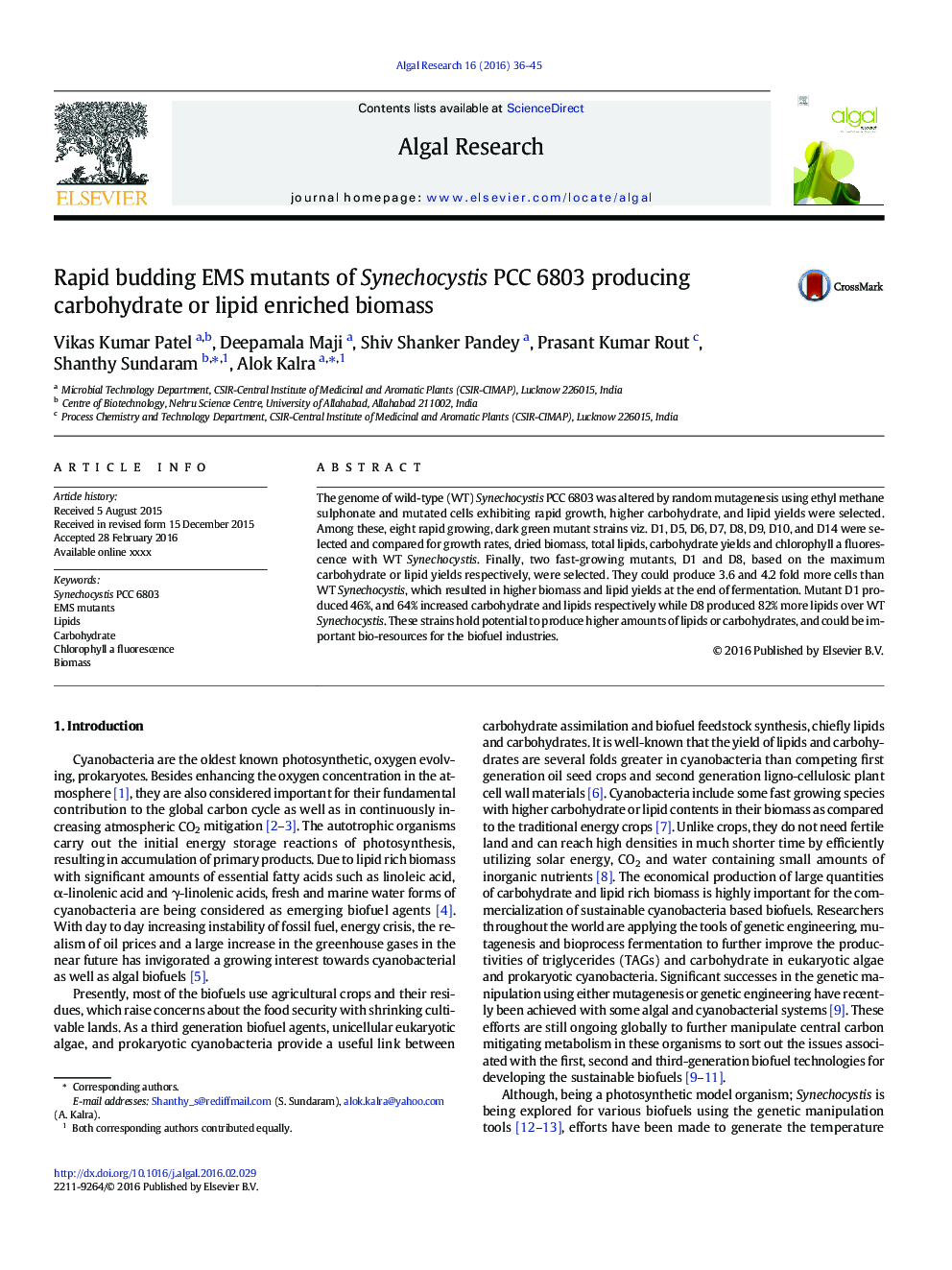| Article ID | Journal | Published Year | Pages | File Type |
|---|---|---|---|---|
| 8086984 | Algal Research | 2016 | 10 Pages |
Abstract
The genome of wild-type (WT) Synechocystis PCC 6803 was altered by random mutagenesis using ethyl methane sulphonate and mutated cells exhibiting rapid growth, higher carbohydrate, and lipid yields were selected. Among these, eight rapid growing, dark green mutant strains viz. D1, D5, D6, D7, D8, D9, D10, and D14 were selected and compared for growth rates, dried biomass, total lipids, carbohydrate yields and chlorophyll a fluorescence with WT Synechocystis. Finally, two fast-growing mutants, D1 and D8, based on the maximum carbohydrate or lipid yields respectively, were selected. They could produce 3.6 and 4.2 fold more cells than WT Synechocystis, which resulted in higher biomass and lipid yields at the end of fermentation. Mutant D1 produced 46%, and 64% increased carbohydrate and lipids respectively while D8 produced 82% more lipids over WT Synechocystis. These strains hold potential to produce higher amounts of lipids or carbohydrates, and could be important bio-resources for the biofuel industries.
Related Topics
Physical Sciences and Engineering
Energy
Renewable Energy, Sustainability and the Environment
Authors
Vikas Kumar Patel, Deepamala Maji, Shiv Shanker Pandey, Prasant Kumar Rout, Shanthy Sundaram, Alok Kalra,
